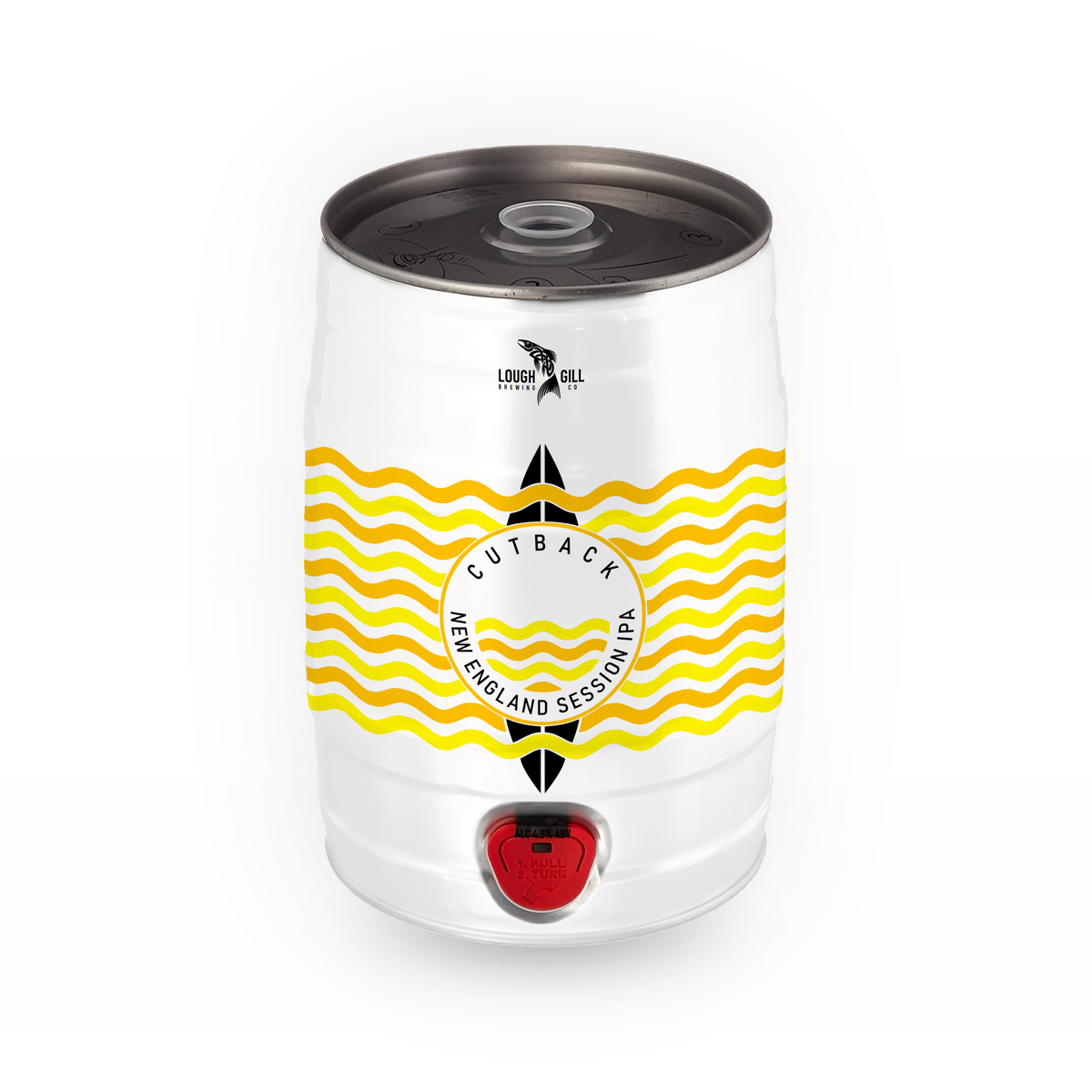Following our previous blogs introducing the designers behind BRÚ’s new look, we thought it was time to conduct a deep-dive into the beautiful illustrations behind our labels, explaining the story and symbolism behind each one.
To celebrate Irish culture, we’ve linked each of our BRÚ Core beers with a specific Celtic god as a nod to the past, a celebration of traditional beer styles and to integrate our proud Irish identity into our products.
To conclude this blog series, we focus on one of the most famous mythological heroes, the demigod Cú Chulainn, a celtic figure with unwavering strength who is represented on our BRÚ Red Ale. Cú Chulainn is renowned as the great hero of the Ulster Cycle stories, known for his high status on the Red Branch Knights, the King of Ulster’s group of warriors.
Cú Chulainn’s celebrated strength and his fame in Irish mythology made him the perfect symbol for our core Red Ale, a traditional Irish beer style.

Cú Chulainn was born as Sétanta (son of Sualtam). Son of Lugh, the sky God, and Dechtire, a human. From a young age, Sétanta demonstrated superhuman strength, wisdom, warfare and magical traits. It was prophesied that his heroic deeds would bring him everlasting fame, but he would die young.
He was a legendary hurling player, the national sport of Ireland. The King of Ulster, Conchobar, was so impressed with Sétanta’s extraordinary skill in the game that he invited him to attend to a party at the house of Culann, a blacksmith. Sétanta had to attend to a hurling match, but he promised to go straight after. When he arrived, he was attacked by Culann’s ferocious guard dog. Sétanta defended himself with his hurling stick, killing the dog with a single blow. Cullan was devastated over the dog’s death, so Sétanta offered to take its place until a replacement could be reared. This earned him the title of “The Hound of Cuilan” (Cuchulainn), where his nickname, Cú Chulainn, was derived. He was also called “the Hound of Ulster”.
Cú Chulainn fought many battles, using his barbed Gae Bolga, a weapon that could tear into his enemies’ flesh. Due to his legendary strength, Cú Chulainn was despised by many, but Lugaid mac Cú Roí was his most powerful foe. Lugaid mac Cú Roí plotted with other enemies, whose sons had been killed by Cú Chulainn, to attack him by targeting his geas—in Irish folklore, almost every hero has vowed to adhere to specific prohibitions or obligations, called a “geas” (or geasa as the plural). They planned his downfall by targeting two of Cú Chulainn’s geasa, which were to never eat dog meat and never refuse hospitality.
On his way to battle, Cú Chulainn encountered three one-eyed hags feasting on roast dog. He was invited to join them and was compelled to accept their offer. He took one bite of the dog meat, breaking one of his geasa, which immediately weakened him. Then on the battlefield, he received a lethal blow. He tied himself to a pillar with his spear pointed at his foes, so he could continue to terrorise his enemies even as he died. As was foretold, Cu Chulainn achieved fame, but his life was cut short.
Cú Chulainn shares many similarities with other mythological figures, such as the tragic death of Greek warrior Achilles and the famed strength of Hercules. He has also been represented in pop culture: he was said to carry a trait of ‘ríastrad’, which means that he would transform into an unrecognisable monster with no sense of friend or enemy, a characteristic shared with the Marvel superhero, the Incredible Hulk.
Cú Chulainn’s story is world-famous and was further popularised when American President Theodore Roosevelt and the artist JC Leyendecker acknowledged featured Cú Chulainn´s tale in Century magazine in 1907. This triggered a renewed interest in Celtic history at the time.
His myth and popularity has made him the greatest and the most important Celtic warrior hero of medieval Ireland. That’s why it was inevitable that Cú Chulainn would be represented on one of our BRÚ Core beers and our BRÚ Red Ale was the perfect fit for the greatest Red Branch Knight.
Our Red Ale won’t test your fortitude—it’s remarkably drinkable—but we won’t blame you if you feel more powerful with every sip.






